
Three years ago, H31R’s debut album, ve·loc·i·ty, landed like an adventurous electronic/hip-hop experiment gone right. Since then, Brooklyn rapper/singer maassai and NJ/NY producer JWords have grown as people, elevated their craft(s), and fused together into a formidable entity.
Second album HeadSpace is out now, composed of 14 short, utterly unique bops with resolutely introspective lyrics. Lofty and grounded, progressive and relatable...to my ears, it is an instant classic destined to be discovered by future generations.
On zoom, I chatted with H31R while maassai was tucked into a storage closet at work, and JWords blazed a J in her room at home. Topics included the new album, genuine vs. merely proximal community, and Erik Erikson’s eight stages of psychosocial development.
The following has been edited and condensed for clarity.
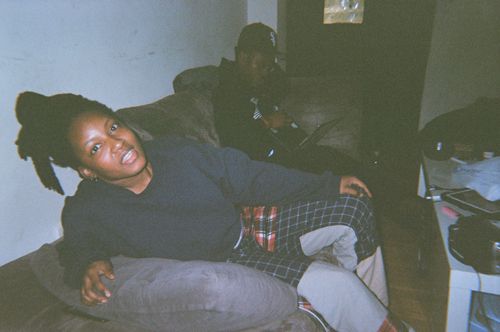
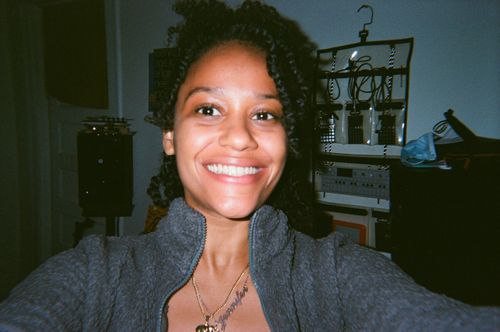
I’ve interviewed JWords before this, and got some of the H31R origin story then, but can one or both of you please tell me again how you met and started making music together?
M: We met in 2017 at the Glove (in Brooklyn), we were both on the same bill called “Necessary.” We were fans of each other from that night. I thought it was cool she was playing her beats live, they were electronic, I liked them a lot. And she liked what I was doing. So we kind of knew from that point that we wanted to collab. But we didn’t start cultivating our musical dynamic until later. We became friends first.
J: A sprinkle to add: I was making beats, but I was more so getting into the live aspects. I wasn’t recording. So it took me a while to send beats to maassai. But we always knew in the future we would make music. And we’re here in the future, now.
That’s cool you were active as live performers before you recorded. These days it’s often the other way around.
J: I be excited to perform live.
M: Before 2019, I was really a performing artist. If you wanted to hear my music you had to come to my shows. I had dropped some stuff 2014-2015, and then was developing my sound, so you had to come to the show.
J: I think we were both in that same stage. Performing a lot but not recording a lot. And I always wanted a vocalist. And I was like Oh my god, this is perfect. And we have the same vibe, loving vibe. It’s a great friendship so far.
M: Aw.
Why did you call your group H31R?
J: We’re both air signs.
M: I’m a gemini, she’s an aquarius. And it’s a cool play on words. Like heir to the throne. And techno-y, so we added some lil numbers.
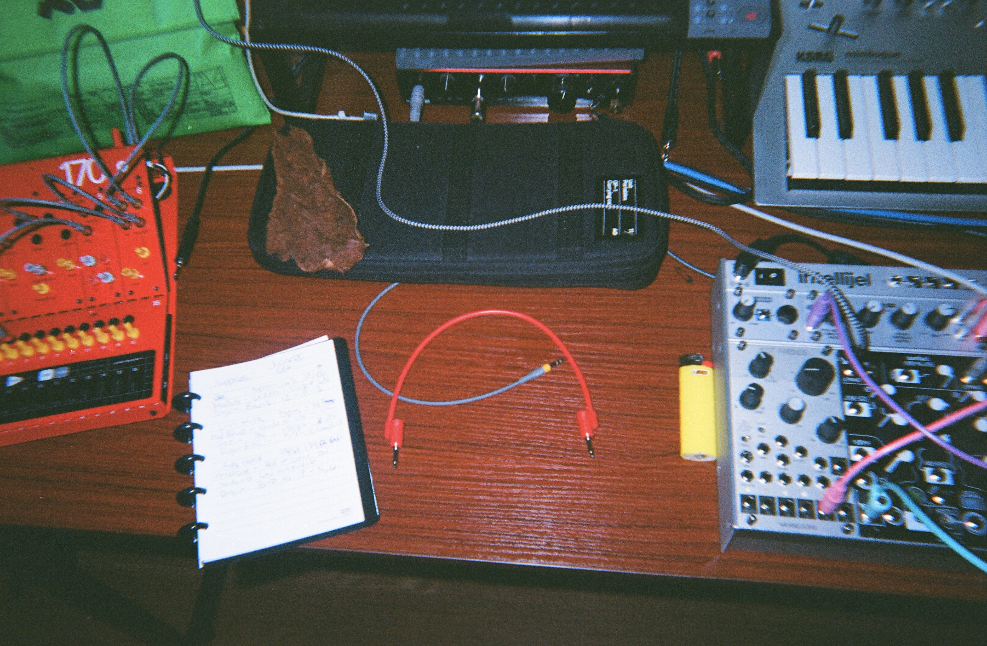
Do you consider yourself heirs to legacies of other musicians or figures – maybe family, maybe cultural or musical figures?
J: I think what we’re doing is unique and gonna leave a mark.
M: And that idea of taking up space: what is rightfully our space. We’re collectively making a fusion of musics, that have been created by people around the African diaspora, and honing in on that. We are claiming our space in that. As women of color, women in general. I feel like it make a lot of sense to jack heirs.
J: This duo is unique and special. If I were younger, I’d be inspired by us. Because I was listening to a lot of duos when I was young: THEESatisfaction, Blu & Exile, Madlib and MF DOOM. So I always wanted this. And now, yes. I’m making all these crazy beats, maassai’s a great rapper, singer, vocalist, and what we are doing is needed.
M: Yesirski.
What was different about recording HeadSpace than ve·loc·i·ty? What changed for both of you individually, and together, between these albums?
J: A lot changed. veloci*ty was recorded during the pandemic, and having to work remotely. HeadSpace was moreso like, let’s put this album together. The first album we had to do everything: come up with the name, come up with a whole entity…
M: It’s been a minute. Three years. Every year in your 20s is massive growth. We are in our later 20s, and we were going on our mid 20s when we dropped veloci*ty, so there’s a lot of coming into our adulthood on this album. Maybe a little less angsty. There’s still grit, but we’ve come to terms with ourselves and who we want to be, who we want to be around, all that.
J: This transitional phase of becoming higher selves. veloci*ty is like, yeah, we’re here bitches, boom!
M: Fuck y’all!
J: We entered the group chat!
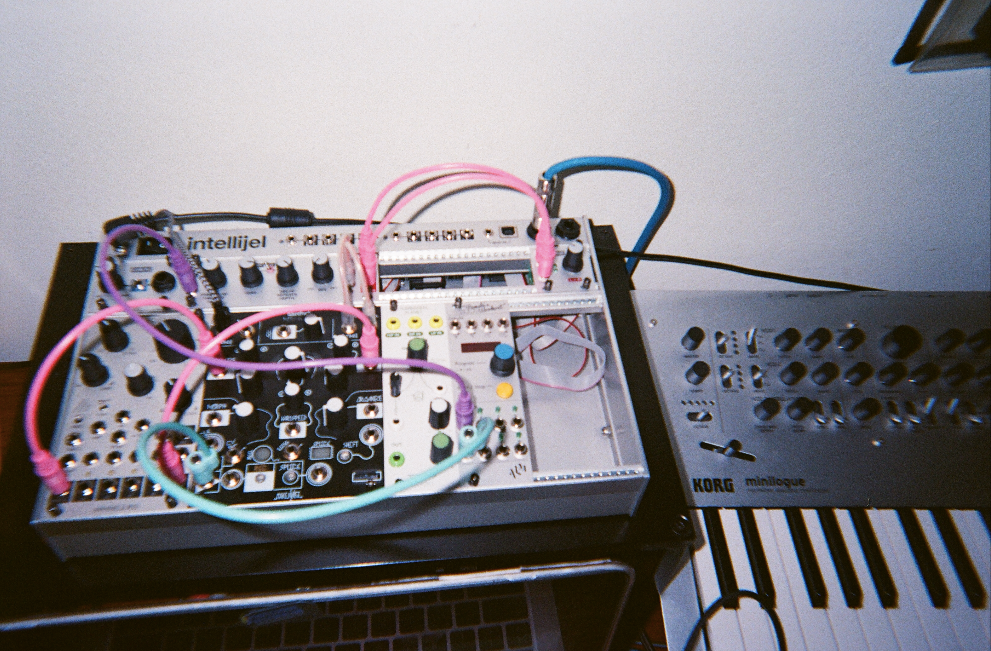
Could you please describe some of the colors, temperatures, moods, textures, or main characteristics of HeadSpace?
M: Jen loves these types of things.
J: Colorwise, it gives a lot of blue, sky, dreamy, clouds. That’s one side. There’s two sides of this album. The beginning is more grittier, more textures. The second half is the letting go and the being OK with being uncomfortable, like, if I have to go through this, I’m gonna go through this.
M: Yeah. As a note, whenever Jen plays me a beat, she usually will describe the beat based on textures and colors.
J: Emotion. This word could fit this beat. I remember when I showed you “Backwards,” I knew you were gonna like that beat.
M: One of my favorites, if I never told you that.
J: Now I’m like I have to keep going crazy! I don’t even know what I did back then. But, well, we continue.
I love “Backwards” as a single, right away I realized the beat slaps harder than before, and like, it’s the H31R sound, but a little more geared to moving the crowd live. Was that intentional?
M: We are melding better. ve·loc·i·ty was like maassai-and-JWords. We were merging our styles. But this was more us melding. We sound more like an entity. I’m much more comfortable on Jen’s beats, now, too. And yes, we were like, let’s let this be bops, and it’ll be so fun to perform live.
J: And me, I’m gonna make it bugged out. But I will say “Backwards” to me is more hip-hop, especially with the drop in the beginning.
M: It drops so strange, though. When it drops, your whole head…ohhh wait. OK we’re back in it.
That’s the best though. Your music challenges you but locks you in a groove, so you’re fucked up by it, but rocking with it.
M: Exactly. That’s what drew me to JWords beats. Cuz I was also fucked up by it, but it still grooved. I was like, that’s my vibe.
J: I just be making beats, recording them onto Ableton. And sometimes they’re just jams. A lot of people are perfectionists, but my shit is like it is what it is type vibe. I record a jam and then am like, I’m not gonna even touch it. It was created in the moment so you gotta keep it in the moment. But there is time to go back and organize a beat. But “Backwards” i was just jamming, having a nice night. I was probably drinking.
M: Shout out the gin.
J: The gin and tonic. No I don’t get too drunk honestly.
M: For the record, she’s not an alcoholic.
maassai what’s your writing process like? I have vision that you write longhand.
M: I wish. I do have several notebooks. One of my hobbies is buying notebooks with the intention of writing in them. It’s a good practice. It allows you to memorize lyrics better and faster. But a lot of times, because my writing process is so inspired by the world outside, my process starts where I just think of something because I saw something outside. I come up with a bar that inspires my deeply. I’m on the train, and i’m like I gotta write this down. That’s how my process begins, and on the…on the toilet.
J: Oh you said it.
M: Vulnerable space. Very personal.
J: maassai writes bangers on the toilet.
In the big picture, how do you both feel about the idea of progression in music, or the topic of progressive music? Is that something you do?
M: I think we do. I think we consider ourselves forward thinking, pushing the mold, pushing the boundaries. Progressing and constantly developing our concept of what it means to make the types of music we make. That’s who we are. Everything is intentional, but also just what we are drawn to.
J: Looking for change, looking forward to what could be, instead of doing what is. I never thought about, I’m gonna make some different shit. It’s just in me to be like, doing shit my way. What I learned from J Dilla and Madlib is you gotta be yourself, and make the music that naturally comes out of you. We’re both naturally innovative people.
M: For me, I never felt like I was normal. I never felt like I fit the mold. I danced the beat of my own drum. It just makes sense I would make the type of art I do.
J: When I got into music, I always wanted to see what I sounded like, you know? A lot of people follow a formula, and even go to school for it. I just do this shit. Obviously it’s good to know scales, but you gotta feel it. Do what you feel.
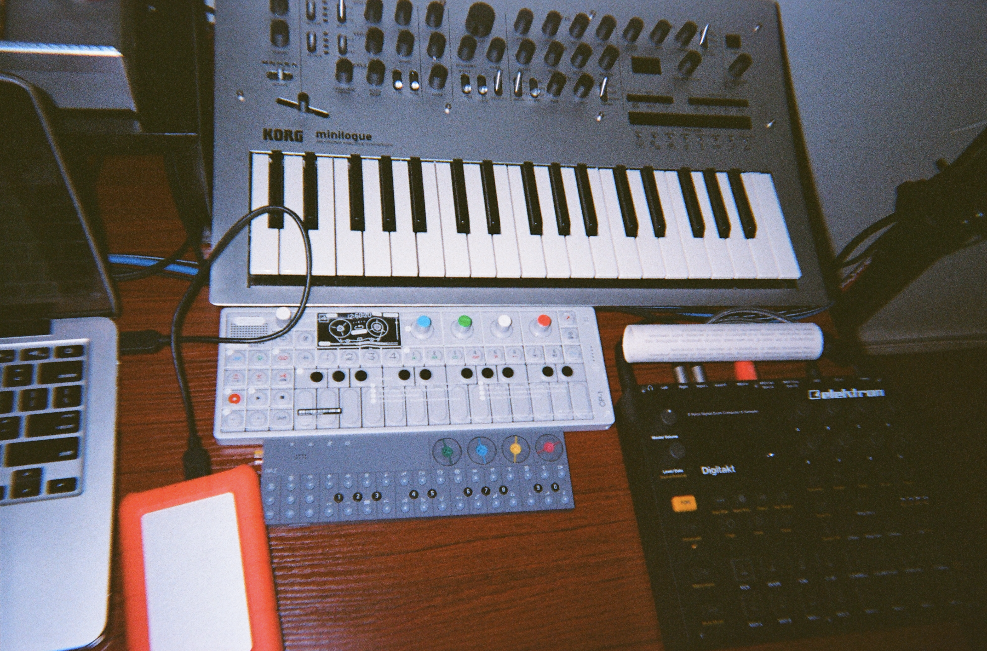
maassai, what are some of your favorite beats that JWords made on HeadSpace?
M: “Backwards.” “Right Here.” So many great ones. I love all of these beats. That’s why I decided to get on them. But I also really enjoy “Reflection.” And “Train of Thought.”
“Right Here”: the flavor of that song is so particular, it’s about love and lust but it’s so straightforward and challenging. Are you gonna waste my time? Or what? Like that’s what you think is sexy, is not wasting time, getting to the point.
M: It’s definitely coming with some spicy energy. Like, What’s good? I think in general the way I would always want to approach a love song isn’t a stereotypical way.
J: Anti-love song.
M: And it’s not anti-, but it’s about empowering myself. And giving myself that power.
JWords, what are some of your favorite maassai songs/raps on this album?
J: “Backwards.” At the time I was going through a lot of growth, and feeling who I wanted to be around. “Backwards” was such a good anthem for that. I’m moving forward while you’re moving backwards, and that’s OK. And then there’s “Train of Thought” where she’s going crazy about self reflection or self realization. One of my favorite bars on that song is, “Haven’t ate dinner yet / but I’m so full of myself I can skip it, yes.” I love that bar. I was like, Ooh! We recorded a lot of songs together, too, so it all felt intertwined. I love “Big Bang,” the lyrics are very powerful, making something out of nothing. I connect with all these songs. “Static.” About realizing you make the change in your life, the change is uncomfortable, but it takes weeks to build up a new routine. I was going through a period where that song was so relevant to my life.
“Big Bang” is about generating something from nothing. How does that relate to your life?
M: Came out the mud.
J: Growing up, nobody in my family was like, yeah, make music. I had to figure it out myself, no tools, no money for equipment, didn’t really have nothing. But a dream for a better future, which keeps me going forward.
M: People like us, who don’t come from wealth, don’t come from access to a lot of things, but are making something out of ourselves, this is your mantra. We turned something that was little into something great. That’s the sauce of growing up in the hood. Mantra.
J: That song is incredible. I relate so hard.
It’s a different energy than the Republican idea of bootstrapping, or just trying harder to get ahead in life. What you’re describing doesn’t have that tone of “what’s wrong with you?” This tone is more like self discovery, or pay careful attention to your surroundings…
J: Believe in your ideas.
M: This is empowering. The Republican idea is shifting blame to people who don’t have access. And by no means are we saying you deserve to be in this predicament, but either way we gonna grind, because we gotta survive at the end of the day.
“Reflection” is a very intriguing song, about people mirroring each other. It made me think about my daughter a lot. She is a mirror for everything I do, good and bad, she picks up on everything. But across humanity, we are all showing each other ways to be, or how we can act, what it means to be a society. What was the inspiration for writing that?
M: I love that.
J: I love that. Everybody is a mirror for each other. If I give you energy, I’m gonna see that energy from you because I just gave it to you.
M: Facts. That song, I love that you took that from it. Because there is a part where I talk about a family tree, and bring family into it. That song was supposed to be like speaking to yourself, but I do think that mirrors are endless. We mirror each other, our families, our communities, our environments.
“Shadow Self” asks a very good question, I think, which is, Who are you when you’re alone? When you put that question back on yourselves, what are some of the answers you come up with?
M: Without being seen, like just with myself, I am a human being. A spiritual being living a human experience. Filled with complex emotions. Makes mistakes. Tries to do right. I really do try to work on being who I am, with others. Presenting in my truth.
J: I’m pretty emotional. Very affectionate. Other than that, when I’m truly by myself, in my own head space, I think about things. I think about things I could have done differently or things I’m doing, and I try to shake them off. It’s a human experience in this everyday life, having to take care of my body and myself. A lot of life experiences will put you on square one again. You think you know it all, until you don’t. And you have to restart. There’s always a rebirth going on. Always dying and being reborn again. Through experiences and hardships. I enjoy going through things, because I learn a lot, and I know what to do a little more, with every year that passes.
You said you both changed a lot in the last three years. According to the psychologist Erik Erikson, in this phase of your life you’re establishing what it means to have intimacy and relationships with others, versus falling into isolation. You’re trying to get to know other people, be in community, learn what it means to share yourself. That’s something I hear on the album. Does that sound like your phase of psychosocial development right now?
M: Yeah. A lot of times I feel like an alien. So that’s an ongoing feat, in my life. Establishing intimacy and being able to deepen my dynamics with others. And finding community for real. In a real, genuine way. A lot of times community is not intimacy. I’ve made the mistake of confusing those two things. People you frequent or are around you, confusing that for real trust, but there’s not actually trust established. So I think so.
J: Once you get to know yourself, and know your boundaries, there’s people for every place and thing. Once you start knowing yourself, you know who you can party with, and who you can tell you’re going through something.
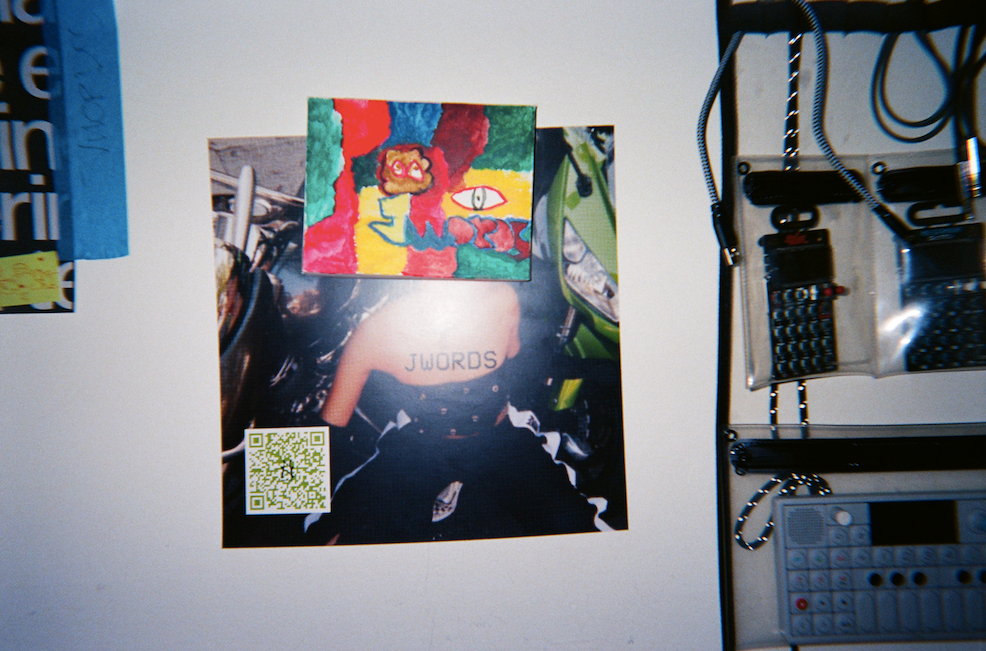
That psychologist would maybe say in your teenage years you’re finding out what your voice sounds like, and in your 20s you’re putting it in an avatar, and in different scenarios, and testing socially what happens, what’s going on. I think your music might soundtrack that, in a way that’s really aware of your own experience, and really rare in terms of how analytical you are of internal thought processes and feelings. I think it’s gonna make the music endure for people who are going through this phase of life.
J: I can agree with that.
M: What do they say about your 30s?
That phase lasts a long time, until your 60s. Your 30s into middle age, your mission is to either generate, or stagnate. It’s to produce output, cultural, social, bring things into the world, have kids, not have kids, have ideological kids, contribute, or…not.
J: Like you went through all this, what are you gonna do with it?
M: I like that.
J: Yeah that’s how I think about my 30s, you’re a professional and you’re ten years into what you’re doing. I’m gonna go the route of contributing something, by creating music.
What would you like to see more of in music?
M: I am a fan of the fact that women have taken over rap in recent years. And are owning their bodies. I would love to have different representations of that, and how it’s displayed. More queer women, talking about their relationships with other queer people, and not just centering men. The way that we’ve been talking about ownership of ourselves is cool, but I would like to see different sides. That’s something that I would look forward to.
J: In the next few years, there’s gonna be more representation. I want to see more people being themselves. Not following a formula, because of optics. It’s cool to see more people making their own genuine music, what they truly feel inside. And it’s good to express that to kids, too, so I’m putting it out there for the next generation.
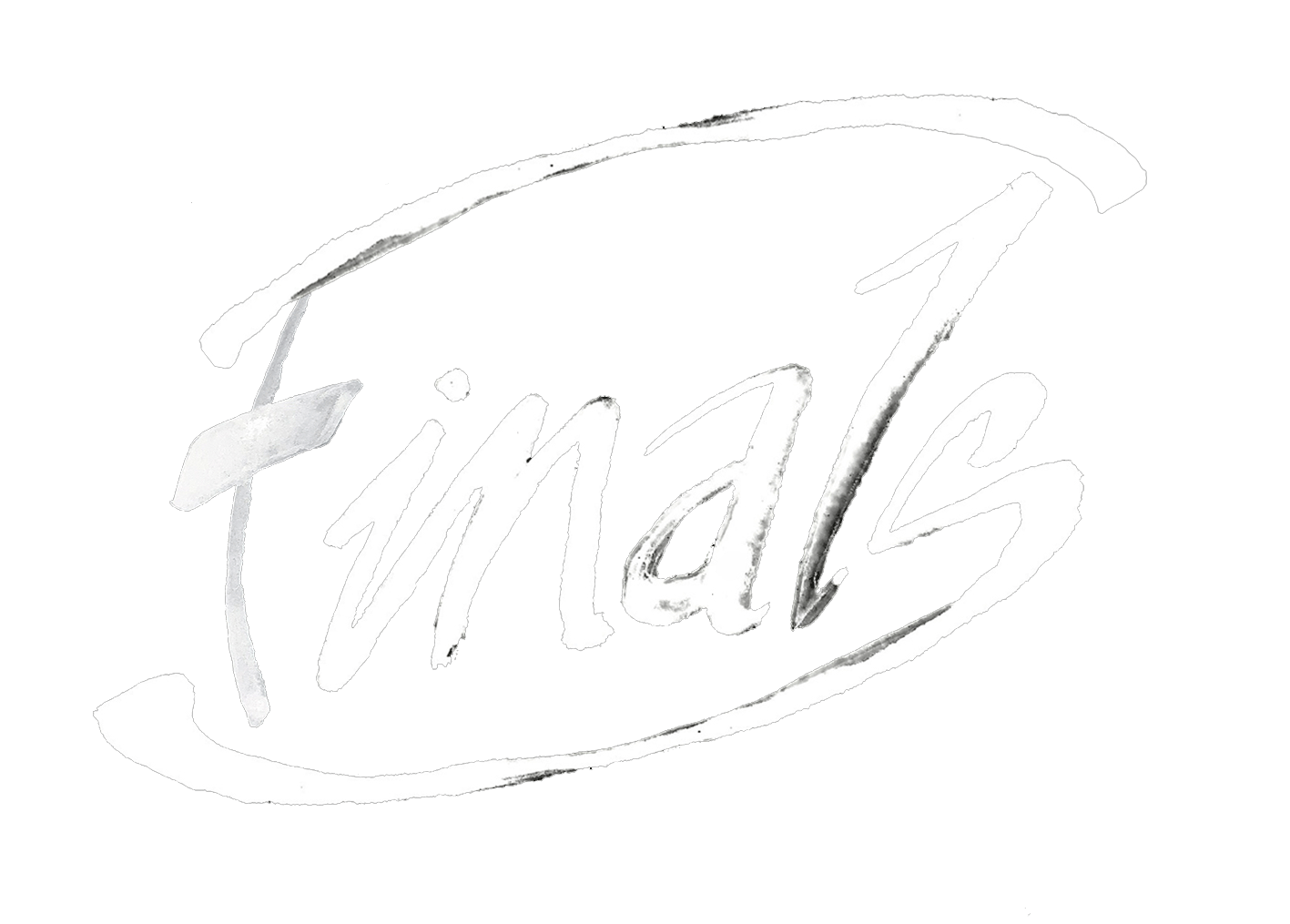
Comments
Leave a Comment